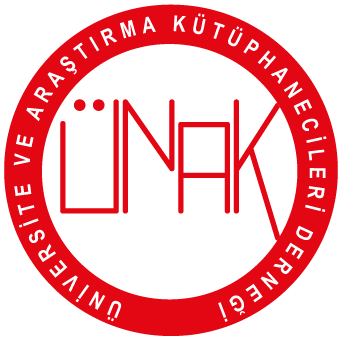Yunan ve İspanyol Lisans Öğrencilerinin Akademik Kütüphanecilik ile İlgili Kütüphanecilik Biliminin İçinde ve Ötesinde Bakış Açıları
DOI:
https://doi.org/10.15612/BD.2019.751Anahtar Kelimeler:
Öğrenci anketi, kütüphane bilimi müfredatı, akademik kütüphanecilik akımları, kitlesel kaynak kullanım programıÖzet
Yeni bilgi uzmanlarının yetiştirilmesi ile ilgili kütüphanecilik ve enformasyon bilimi lisans programlarının yeterliliği, müfredat yapısı ve odağı hakkındaki karşıt görüşlerle süregelen tartışmaların konusu olmuştur. Bu bağlamda, devam etmekte olan doktora araştırmasının bir bölümünü oluşturan bu çalışma, akademik kütüphanecilerinin yeni rollerine ve işlevlerine etkin bir şekilde yanıt vermeleri için kütüphanecilik okul müfredatının nasıl geliştirileceğine ilişkin öğrencilerin görüşlerini analiz etmektedir. Araştırmacılar, merceği standart eğitim uygulamaların ötesinde pratik ve deneyime dayalı öğrenci bakış açısına tekrar odaklayarak, bir kütüphane bilimi öğrenci anketini pilot olarak test etmişlerdir. Karma metotlarla öğrencilerle ortak geliştirilmiş ölçme aracı, gelecek bilgi uzmanlarının küçük bir kendi kendine seçim örneği ile İspanya ve Yunanistan’da uygulanmıştır. Çalışmanın amacı öğrencilerin kütüphanecilik bilimi eğitimi ile ilgili algıları ve farkındalıklarına ilişkin kısıtlı araştırmalara katkıda bulunmaktır. Araştırma katılımcılarına değişen akademik kütüphanecilik çevresine ilişkin kendi kütüphanecilik okulu lisans programlarının uyumunu eleştirel bir şekilde değerlendirme olanağı verilmiştir. Tanımlayıcı istatistiksel ve tümevarımlı tematik teknikler kullanılarak analiz edilen cevaplar kütüphane ve enformasyon bilimi müfredatının içeriği ile ilgili sınırlı bir akademik kütüphaneciliğin varlığının olduğunu ortaya çıkarmıştır. Bunların da ötesinde, sonuçlar; üniversitede kütüphanenin rolünün güncellenmesi ile ilgili umutlar hususunda ihtiyatlı bir iyimserliğin, kütüphanecilerin gelecekteki rollerine yönelik bir bocalamanın, sistemin yeni bilgi ve iletişim teknolojilerinin sunduğu fırsatları yakalama potansiyeli etrafında yaygın bir şüpheciliğinin altını çizmektedir. Bu araştırmanın değeri hem katılımcıların kavrayıcı yorumlarının çeşitliğinde hem de onları kütüphanecilik okul programının değerlendirme sürecine aktif katkı sağlayan katılımcılar yapan öğrenci onaylı ölçme aracı kullanımında yatmaktadır. Basmakalıp araştırma projelerinden farklı olarak bu girişim, program değerlendirme ve akademik kütüphanecilik paydaşlarının ihtiyaçları ile devamındaki uyumlaştırmaya farklı bir bakış açısı sunmaktadır.
İndirmeler
Yayınlanmış
Nasıl Atıf Yapılır
Sayı
Bölüm

Bu çalışma Creative Commons Attribution 4.0 International License ile lisanslanmıştır.






